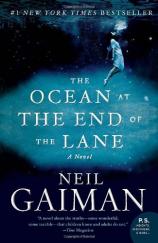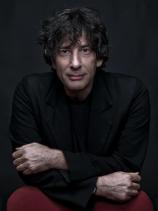Reading Group Guide
Discussion Questions
The Ocean at the End of the Lane

1. It would be easy to think of the Hempstocks as the "triple goddess" (the Maiden, the Mother and the Crone) of popular mythology. In what ways do they conform to those roles? In what ways are they different?
2. The narrator has returned to his hometown for a funeral (we never learn whose). Do you think that framing his childhood story with a funeral gives this story a pessimistic outlook, rather than an optimistic one?
3. Because the narrator is male and most of the other characters are female, this story has the potential to become a stereotypical narrative where a male character saves the day. How does the story avoid that pitfall?
4. The story juxtaposes the memories of childhood with the present of adulthood. In what ways do children perceive things differently than adults? Do you think there are situations in which a child's perspective can be more "truthful" than an adult's?
5. One of Ursula Monkton's main attributes is that she always tries to give people what they want. Why is this not always a good thing? What does Ursula want? How does Ursula use people's desires against them to get what she wants?
6. Water has many roles in this story --- it can give and take life, reveal and hide. How does it play these different roles?
7. One of the many motivators for the characters in this story is loneliness. What characters seem to suffer from loneliness? How do adults and children respond to loneliness in different ways? In the same ways?
8. On page 18, the narrator tells us that his father often burnt their toast and always ate it with apparent relish. He also tells us that later in life, his father admitted that he had never actually liked burnt toast, but ate it to avoid waste, and that his father's confession made the narrator's entire childhood feel like a lie: "it was as if one of the pillars of belief that my world had been built upon had crumbled into dry sand." What other "pillars of belief" from childhood does he discover to be false? How do these discoveries affect him? Are there any beliefs from your own childhood that you discovered to be false?
9. When the narrative returns to the present, Old Mrs. Hempstock tells our narrator, "You stand two of you lot next to each other, and you could be continents away for all it means anything" (p. 173). What does she mean by this? Why is it "easier" for people, our narrator especially, to forget certain things that are difficult to reconcile?
10. Though the narrator has a sister, he doesn't seem to be particularly close to her. Why do you think it is that he has trouble relating to other children? Why do you think his sister is not an ally for him?








